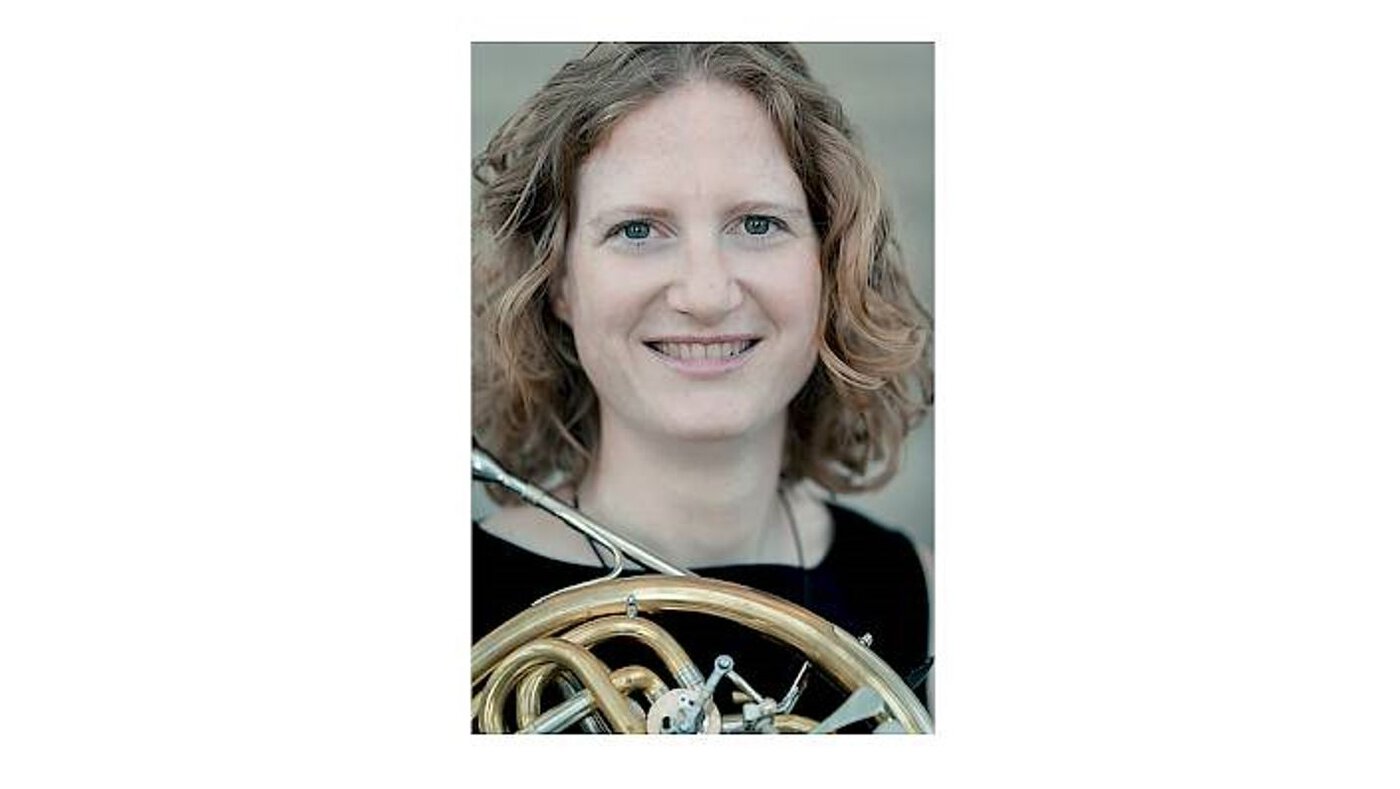A new member of the SMV Central Board
Violinist Birgit Thorgerd Müller was elected as a new member of the Central Committee at this year's SMV Delegates' Meeting. We introduce her.
She gave us the answers to our questions about her motivation and life as a freelance musician in writing.
Birgit Thorgerd Müller grew up in Coburg, Bavaria, until she graduated from high school in 1988.
From 1986, she studied violin as a junior student with Jacob Gilman in Munich. She then completed her regular studies with a concert exam. Further training took place in the class of Nora Chastain in Winterthur. She received additional artistic impulses in violin master classes with Aaron Rosand, Zhakar Bron and Grigori Zhislin, among others.
From 1993 to 1995 she played in the Stuttgart Radio Symphony Orchestra before moving to Zurich for private reasons and starting a family.
Since moving to Switzerland, she has worked as a freelance/interim conductor, primarily with the Zurich Opera House Orchestra (Philharmonia Zurich) and regularly with most orchestras in German-speaking Switzerland (Lucerne, St. Gallen, Winterthur, Basel, Bern), in neighboring countries (SWR Symphony Orchestra, Munich Philharmonic, Bavarian Radio Orchestra) and, for example, with the Gstaad Festival Orchestra.
Her collaboration with Nikolaus Harnoncourt, Zubin Mehta, Bernard Haitink, Herbert Blomstedt, Teodor Currentzis, Daniele Gatti and Jaap van Zweden, among others, has given and continues to give her valuable impulses and allows her to pursue her profession as an orchestral musician with passion.
She also devotes herself to solo and chamber music concerts. She is particularly interested in premieres and first performances by contemporary composers. Gerhard Deutschmann, Andreas Willscher and Vahram Babajan have already dedicated works to her.
Birgit Thorgerd Müller, what motivates you to work on the SMV Central Board?
Not primarily in connection with the work of the Board of Directors, but it is very important to me to raise awareness and sensitize people to the value of music for the mental health of our society. This is completely independent of whether you create music yourself or "only" consume it.
Here's a little story from a trip to Nové Město nad Metují in the Czech Republic this summer: the owner had set up a piano in the courtyard of the castle there, with the explicit message that if you could play a little piano, you were welcome to make music. During our short stay, cell phones were put away and conversations about music and completely different topics arose between strangers, between piano players and listeners. The atmosphere changed noticeably. I feel that music speaks to something unifying and peacemaking in all of us. In my opinion, we can make much broader use of this positive effect.
My motivation to join the SMV Central Board stems from a deep desire to actively represent and strengthen the interests and concerns of my colleagues. This is helped by the fact that I like to act as a link between individuals and groups. I would like to use this ability to promote cohesion within our community and advance common goals.
I am also particularly concerned about the adequate remuneration of musicians. I firmly believe that the valuable work we do must be fairly and appropriately rewarded. I would like to do my utmost to further improve the framework conditions for music-making in Switzerland.
On the committee, I would like to work on ensuring that our voice is heard even more strongly in the cultural discourse and that we as an association act in a sustainable and future-oriented manner.
How do you experience everyday life as a freelancer?
I personally know both the life of a permanent employee and the life of a freelancer. Switzerland offers a lively cultural diversity in the urban centers with a great demand for musicians. Culture is promoted so that a variety of projects can take place. The classical scene is quite manageable, so that most people know each other and freelancers can also support each other. Ideally, everyday life is musically varied due to the flexibility.
In addition to these very enriching aspects, there are of course the financial and logistical challenges: the order density is not always the same and the projects are not always equally well paid.
What else can SMV do to support freelancers?
The SMV already offers a wide range of support options. For example, from legal assistance to ongoing minimum fee negotiations and an emergency fund. In my opinion, a stronger network among freelancers and special training courses or workshops would be desirable and worthwhile. The SMV could provide even more impetus for this.
However, I also know from my own experience that freelancers often find it difficult to plan extracurricular activities due to the need for permanent professional flexibility. As the SMV, we are continuing to work on this and are trying to reach freelancers and strengthen the group feeling, also in order to give the voice of freelance musicians more weight socially and politically.








